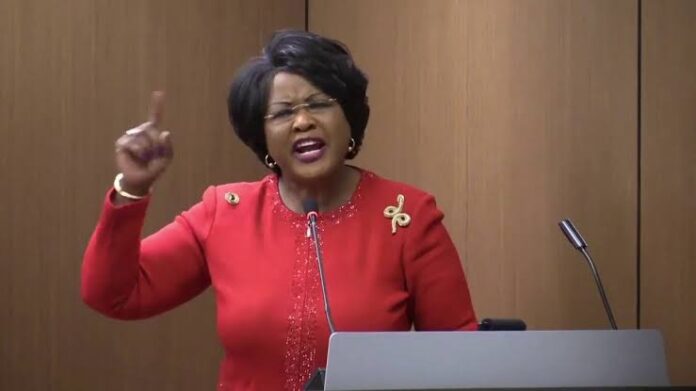In recent times, political landscapes across the world have witnessed rapid and often unpredictable shifts. The term “coup” traditionally refers to a sudden and often violent overthrow of a government, typically orchestrated by a small group of individuals within the existing power structure. In a dicussion on Arise News, Dr. Arikana Chihombori-Quao, former Ambassador for the African Union to Washington, a prominent political analyst, challenges this conventional understanding in the case of Niger’s recent political upheaval. According to Dr. Arikana, what the world has labeled a “coup” is, in fact, a revolution fueled by the people’s yearning for change and economic development.
Niger, a landlocked country in West Africa, has experienced several instances of political instability throughout its history. The term “coup” has often been associated with military leaders seizing control of the government, resulting in authoritarian regimes. However, the recent events in Niger have taken a different course, leading Dr. Arikana to label it as a “revolution” rather than a traditional coup.
Dr. Arikana’s assertion that the Niger crisis is a revolution hinges on a nuanced analysis of the motives, methods, and outcomes of the recent political shift. She argues that the term “coup” oversimplifies the situation and fails to acknowledge the profound societal undercurrents driving the change.
ALSO READ: Cyril Ramaphosa Asserts African Independence and Rejects Beggar Stereotypes
According to her the happening in Africa is, “A revolution that saw the demise of the mighty Roman Empire, a revolution similar to the fall of the mighty Britsih Empire. There is no way the West would have continued to exploit African natural resources and abuse the Africans for as long as they have. The end is here and I hope France does see the writing on the wall”.” This is just the beginning of the African Revolution. What they have done in the past is not simply going to work” she continued.
Unlike conventional coups, which are often driven by personal gain and power struggles within the military, the driving force behind Niger’s upheaval is the collective dissatisfaction with the government’s performance. Dr. Arikana points out that the Niger’s population grievances have been building up over the years, including concerns about corruption, lack of basic services, and a deteriorating economy. This widespread discontent aligns more with the motivations of a revolution aimed at systemic change rather than a coup seeking to replace one authoritarian regime with another. She said, “Looking back at the previous coups orchestrated by Western Powers, of course majority of them which were orchestrated by France , they had their own intentions. the leaders of the African countries were trying to do what was ultimately best for their people and those leaders were assassinated”.
Referring to the situation with the former French colonies, she mentions that before even a President comes to power there are certain no-go areas that the President must not touch because “if you do you may not live to see the end of the day”. Areas like the military, areas like the finances and the reserves that must be deposited with the French treasury, areas of the natural resources. So, if you are an African President who comes to power and you are told “as long as you stay away from the discussion pertaining to their presence in the military presence in the country , training of the military by France , equipping the military by France , not to talk about the natural resources whose French companies have the first right of approval, not to talk and make sure to continue to deposit their Bank deposit Reserves with the French Central Bank then you are free to run your country in which way you want”.
“Today in 2023 Niger is the 2nd most poorest country in the world yet all their resorces are going to France, most Niger is not electrified while their Uranium is lectrifying France and Europe. looking at all these one after the other at every level is unfair and unacceptable” She added.
ALSO READ: Niger: Burkina Faso authorizes grain exports
Central to Dr. Arikana’s argument is the fact that the Niger’s population demands are rooted in their aspirations for a more transparent, inclusive, and democratic society. The term “revolution” inherently carries the connotation of a popular movement seeking to reshape the political landscape in favor of the people’s interests. This differs from coups, which historically tend to undermine democratic institutions and concentrate power within a narrow circle.
She louds what is happening in Mali, Niger, Burkina Faso as she believes “The difference between these coups is that they are being led by our people, the people have spoken, the people now truely understand the issues, the people are standing up to say what has been going on is unfair, is an unacceptable”. “The children of Africa are awoken and can see clearly now. They are standing up and saying enough is enough”.
Dr. Arikana’s assertion that the political shift in Niger is a revolution rather than a coup presents a novel perspective that challenges prevailing definitions. While the distinction between a coup and a revolution may seem subtle at first glance, it carries significant implications for understanding the dynamics of political change. By recognizing the depth of popular dissatisfaction, the broad-based participation, and the drive for democratic reforms, Dr. Arikana invites us to reevaluate our understanding of Niger’s recent events.


